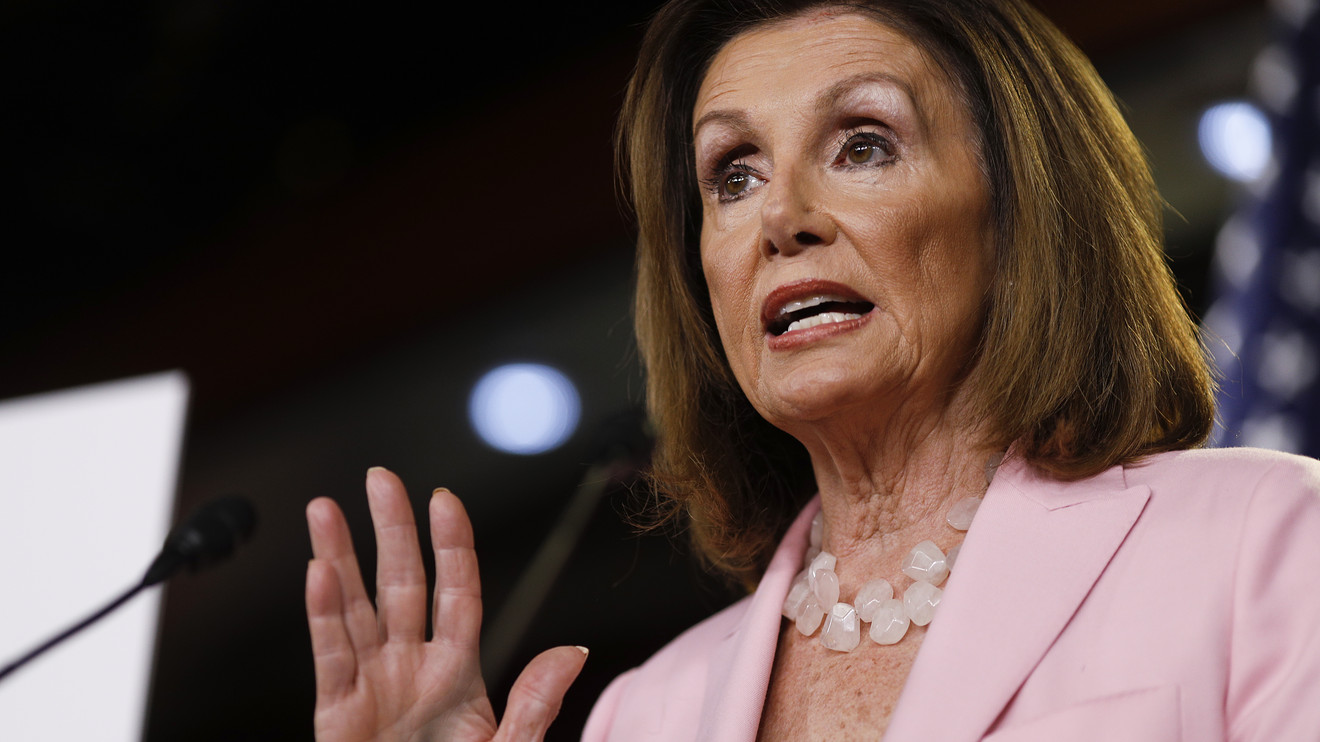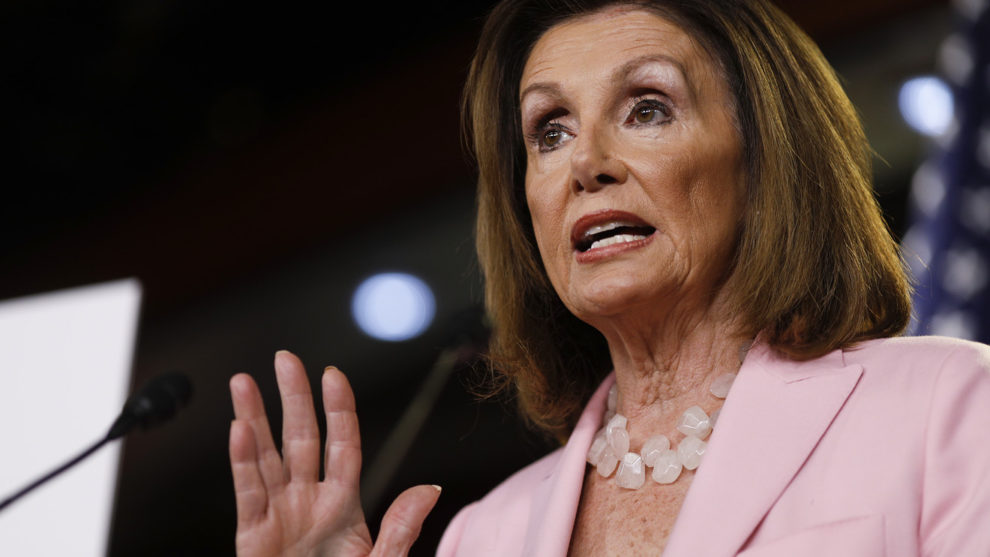
House Speaker Nancy Pelosi and other top Democrats on Thursday unveiled a proposal aimed at lowering drug prices, setting the stage for negotiations on a hot issue with President Donald Trump and other Republicans.
“This is not meant to be the final version of what we’re going to see on the president’s desk. This is meant to begin a dialogue and a discussion of moving a substantive drug-pricing bill forward,” said Mike Strazzella, a health-care lobbyist at the firm Buchanan Ingersoll & Rooney.
Pelosi and her colleagues talked up the need for getting support from Trump, who on Wednesday night reiterated his interest in reducing prices in a tweet.
“We do hope to have White House buy-in, because that seems to be the route to getting any votes in the United States Senate,” said Pelosi, the California Democrat, in a reference to how Senate Majority Leader Mitch McConnell, a Kentucky Republican, has blocked Democratic legislative efforts but also has followed Trump’s lead. Her comments came at a news conference that also featured New Jersey Democratic Rep. Frank Pallone, chairman of the House Energy and Commerce Committee, and Massachusetts Democratic Rep. Richard Neal, head of the House Ways and Means Committee.
“As the speaker said, the president is very much the key,” Pallone said. “If he indicates support, or at least suggests this is a good idea that should be pursued, then hopefully we can get some of the Energy and Commerce Republicans to go along.”
Their Lower Drug Costs Now Act would have the government each year negotiate the prices for at least 25 of the most expensive drugs in Medicare and the private market. Up to 250 medications could be subject to negotiation. The upper limit for prices would be 1.2 times an average international price, and a failure to reach a negotiated price would subject the manufacturer to a sizable penalty, starting at 65% of gross sales and ramping up to a maximum of 95%. In addition, the bill would set a $2,000 out-of-pocket limit on drugs for seniors on Medicare.
“In the Grassley bill, there’s a $3,100 cap,” Pelosi said, referring to legislation co-sponsored by Iowa Republican Sen. Charles Grassley that’s among the array of proposals targeting drug prices. “Our bill is better in that respect and many other respects, but we look forward to working in a bipartisan, bicameral way on this.”
Grassley and Pelosi’s approaches are similar in aiming to modernize Medicare in a way that’s beneficiary-friendly, said Kim Monk, an analyst and managing director at Capital Alpha Partners. Monk predicted that Pelosi’s bill has no chance of becoming law, and she gave a chance of “probably less than 50%” for Grassley’s measure, the Prescription Drug Pricing Reduction Act.
“I do think there will be drug pricing reforms — probably small-ball reforms,” Monk added. She said there could be a deal that would include a revamp of Medicare’s prescription drug benefit, but “that’s very tricky, because Democrats want their direct negotiations and Republicans won’t go there.”
House Minority Leader Kevin McCarthy and other House GOP leaders blasted Pelosi’s proposal as a “socialist approach” on Thursday.
“The Pelosi plan is a step toward nationalizing the drug industry and opening the door to a one-size-fits all, government-controlled rationing of prescription drugs,” McCarthy, the California Republican, and his House colleagues said in a statement. “It also includes an unprecedented 95% tax on companies, which will subsequently drive out competition and force drug makers to close their doors.” McConnell reportedly offered similar criticisms, describing the Pelosi plan’s provisions on Thursday as “socialist price controls” that will damage the health-care system.
Washington is focused on drug prices after health care ranked as the most important issue for voters in the 2018 midterm election. As lawmakers aim to rein in soaring prices, the lobbying spending by seven key drugmakers and the industry’s main trade group, PhRMA, climbed last year to about $70 million — a level topped only by the $87 million total for 2009, when Obamacare was beginning to shake up the health-care sector.
“Speaker Pelosi’s radical plan would end the current market-based system that has made the United States the global leader in developing innovative, lifesaving treatments and cures,” said Stephen Ubl, president and CEO of the PhRMA, in a statement. “It would fundamentally restructure how patients access medicines by giving the federal government unprecedented, sweeping authority to set medicine prices in public and private markets while importing price controls from other countries that restrict access to innovative medicines.”
Pharma stocks, as tracked by the Invesco Dynamic Pharmaceuticals ETF PJP, +0.17% , closed 0.3% higher on Thursday, but they’re down 21% over the past 12 months. Meanwhile, the broad S&P 500 index SPX, +0.00% was up 0.1% on Thursday and has gained 3% in the past 12 months.
A subcommittee of Pallone’s House Energy and Commerce Committee is scheduled to hold a hearing on Wednesday on the Lower Drug Costs Now Act and other pricing-related legislation.











Add Comment